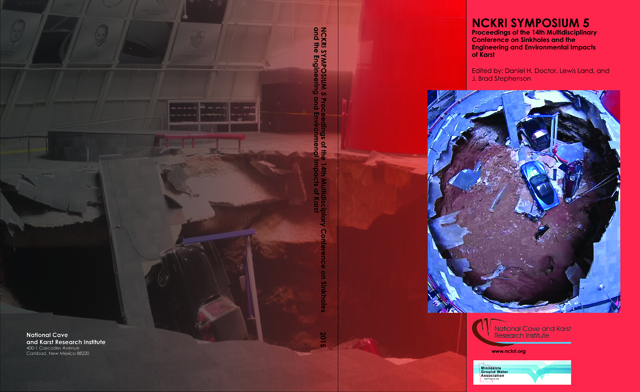Abstract
There seems to be a lack of recognition in the literature that addresses the variety of karst in the United States of America and some of its offshore territories. For example, there are the well-known solutioned carbonates of Florida and the Caribbean, but there are also the somewhat older, harder carbonates of St. Croix, U.S.V.I. Even Florida’s recently deposited karst varies from region to region. There are also the ancient, flat-lying carbonates of the interior craton that often have semi-horizontal cavities resulting from variations in ground water levels affecting bedding and the contorted rocks of the Appalachians with its apparently chaotic variations in solutioning found across-strike and in relation to folds, faults and fracturing. In addition, there are various salt and gypsum deposits in the south and southwest that pose their own problems to man's works. As the geology differs, so does, to some extent, the investigation requirements, investigation techniques and engineering solutions. There is no single set of investigative tools that fit all karst sites. Geophysical investigations are apparently far less suitable for the broken and twisted Appalachian karst than in the flat-lying mid-continent carbonates or the less contorted “karst” of Florida. Specific procedures developed for geotechnical investigation in true karst have been documented for many years now. However, it appears that many practitioners are not aware of them or choose not to use them because of the possibility of increased costs; or too often, a lack of geotechnical understanding of the work of others in karstic areas outside their sphere of experience. This paper will attempt to provide a rational geotechnical approach to carbonate rock investigations in the United States while recognizing the inherent variabilities of the targets and the economics of pre-construction investigations; with the understanding that one size does not fit all.
Rights Information
DOI
http://dx.doi.org/10.5038/9780991000951.1009
Included in
Concepts for Geotechnical Investigation in Karst
There seems to be a lack of recognition in the literature that addresses the variety of karst in the United States of America and some of its offshore territories. For example, there are the well-known solutioned carbonates of Florida and the Caribbean, but there are also the somewhat older, harder carbonates of St. Croix, U.S.V.I. Even Florida’s recently deposited karst varies from region to region. There are also the ancient, flat-lying carbonates of the interior craton that often have semi-horizontal cavities resulting from variations in ground water levels affecting bedding and the contorted rocks of the Appalachians with its apparently chaotic variations in solutioning found across-strike and in relation to folds, faults and fracturing. In addition, there are various salt and gypsum deposits in the south and southwest that pose their own problems to man's works. As the geology differs, so does, to some extent, the investigation requirements, investigation techniques and engineering solutions. There is no single set of investigative tools that fit all karst sites. Geophysical investigations are apparently far less suitable for the broken and twisted Appalachian karst than in the flat-lying mid-continent carbonates or the less contorted “karst” of Florida. Specific procedures developed for geotechnical investigation in true karst have been documented for many years now. However, it appears that many practitioners are not aware of them or choose not to use them because of the possibility of increased costs; or too often, a lack of geotechnical understanding of the work of others in karstic areas outside their sphere of experience. This paper will attempt to provide a rational geotechnical approach to carbonate rock investigations in the United States while recognizing the inherent variabilities of the targets and the economics of pre-construction investigations; with the understanding that one size does not fit all.

